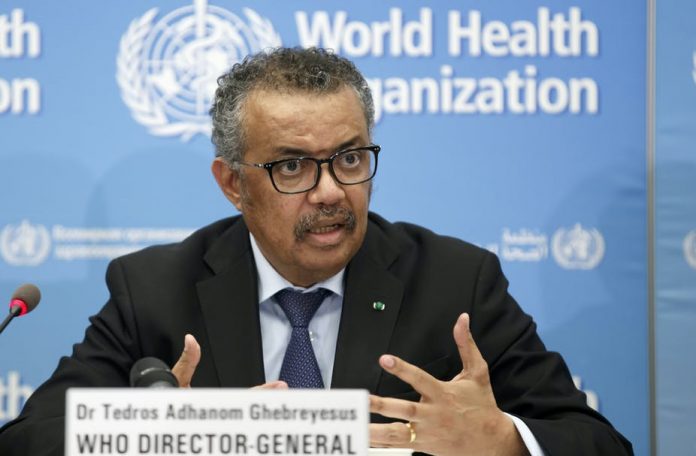We can say it without being mistaken. It will now be necessary to cope with the Covid-19. The World Health Organization (WHO) assures that there will be no quick fixes to overcome this disease. All actions to defeat it must be sustainable.
This tendency to register the fight against Covid-19 is all the more plausible as the Director General of the WHO, Tedros Adhanom Ghebreyesus assured Monday August 3rd that “a certain number of vaccines are now in phase three of clinical trials and we all hope to have a number of effective vaccines that could help protect people from infection. But there is no magic bullet just now and there may never be.”
This statement by the director general of the UN agency, as disturbing as it is, is in line with WHO’s policy.
The Emergency Committee on Covid-19 stresses that the response must be in the long term.
In fact, according to the WHO in a document made public the Emergency Committee for Covid-19, convened by the Director-General of WHO under the International Health Regulations (2005) (IHR), held its fourth meeting July 31.
In its statement drawn up at the end of the meeting and released today, the Committee thanked WHO and its partners for their efforts to respond to the COVID-19 pandemic and stressed that this pandemic would likely last for a long time, in noting the importance of continuing community, national, regional and global response efforts.
After a full debate and review of the data, the Committee unanimously agreed that the outbreak still constitutes a Public Health Emergency of International Concern (PHEIC) and presented this advice to Dr Tedros Adhanom Ghebreyesus, Director General of the WHO.
Dr Tedros Adhanom Ghebreyesus accepted the Committee’s advice and confirmed that the Covid-19 outbreak still constitutes a PUSSI. On January 30, the Director General declared a USPPI – which corresponds to the WHO’s highest alert level under the IHR – when there were less than 100 cases and there were no deaths outside of China. He communicated the Committee’s opinion to States Parties as temporary recommendations under the IHR.
“This pandemic is an exceptional health crisis, the effects of which will be felt for decades,” Dr Tedros told the Committee in his opening remarks on Friday.
“Many countries that believed the worst was over are now grappling with new outbreaks. Some countries that were less affected in the first few weeks are now seeing the number of cases and deaths increase. And some countries have managed to contain large outbreaks,” he added.
The Committee made several recommendations to WHO and States Parties. He recommended that the WHO continue to call on multilateral organizations and partners at global and regional levels for the preparedness and response to Covid-19, to help Member States maintain their health services, while speeding up research work to ultimately provide access to diagnostic tools, treatments and vaccines.
It recommended that countries support this research, including funding, and take part in efforts to ensure an equitable distribution of diagnostic tools, treatments and vaccines, including by participating in the Mechanism to Accelerate the access to tools to fight Covid-19 (ACT Accelerator), among other initiatives.
The Committee also recommended that countries strengthen public health surveillance for case identification and contact tracing, including in low-resourced, vulnerable or high-risk countries, and maintain health services. essential health through adequate funding, supply and human resources.
Countries were recommended to apply proportionate travel measures and advice, based on risk assessments, and to regularly review these measures. The Emergency Committee will meet again within three months or sooner, at the discretion of the Director General.































